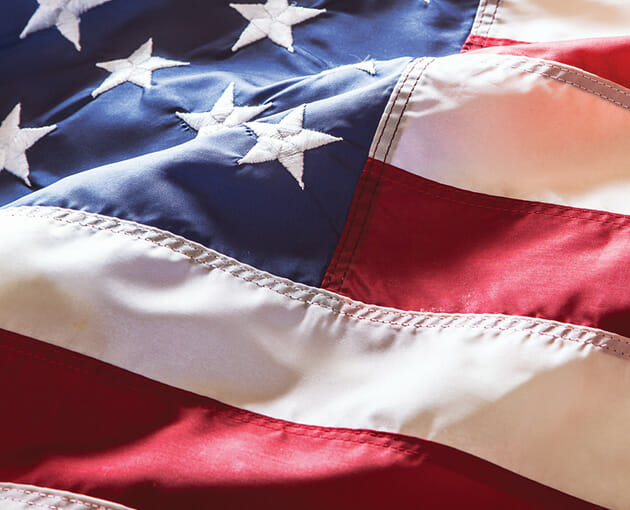
Modern-day scholars and political commentators have often asserted that Enlightenment philosophers and authors most influenced the Founders of the American republic. There is no doubt that the works of such people were in the mainstream of political thought at the time. However, by contrast, political scientist and historian Donald Lutz has claimed that after examining 15,000 pamphlets, articles, and books on political subjects published in late 18th century America, the Bible was cited far more often than any other publication. In fact, he claims, the Founders referenced the Bible more than all Enlightenment authors combined.
What are we to make of such a claim? At the very least, we can say that the Bible had a significant presence and influence on mainstream thought and the formation of the founders’ worldview. Multiple quotes referencing their religious convictions are readily available for anyone who wishes to examine them. For clarification, the term “founders” does not only reference the “big three”—Benjamin Franklin, Thomas Jefferson, and George Washington—described as deists. We must recognize that these were only three of the more than one hundred individuals regarded as our country’s founders. Most were either committed Christians or, at the very least, members of recognizable Christian denominations.
I submit that these founders did not set out to create a “Christian nation” per se; they had no interest whatsoever in creating a theocracy or establishing a government that would force anyone into any specific belief system. They had endured enough of that from centuries of European religious conflicts. But understanding the nature of religious conviction, one would recognize that such faith commitments cannot help but impact a person’s worldview. The Judeo-Christian worldview, as revealed in the Bible, was very much a part of their lives, so it is reasonable to assume that the American republic they envisioned was created from that perspective.
It is no surprise that one of the first and most significant public documents, the Declaration of Independence, refers to God on four occasions. It first states that the united colonies had every right to take their place among the “Powers of the earth” as entitled by “Nature and Nature’s God.” Secondly, it states that that same “Creator gave our unalienable rights.” Third, the writers of the document appeal to the “Supreme Judge of the world” to determine the “rectitude”—rightness or justice—of their cause; and that finally, in supporting the Declaration, they would pledge to each other “our Lives, our Fortunes, and our sacred Honor” with “a firm reliance on the Protection of Divine Providence.” These are all Biblical principles.
Still, some would argue that the Constitution has no Biblical foundation. However, its structure is based upon the principle of governance modeled by God Himself. He has revealed Himself as Sovereign, Lawgiver, and Judge. Thus, the design of our government included a chief executive, a legislature, and a judiciary. However, understanding that we are all sinners and, unlike God, subject to “total depravity” (to use the Calvinist term), we can easily corrupt and abuse the power of governance. So the writers of the Constitution set limits on government; the Constitution codified the duties delegated to the government by the people and established a system of checks and balances.
What I find compelling is our early leadership’s view of the Bible as expressed in two resolutions enacted by the federal legislature. Due to the War of Independence, there was no trade with England as the war was in full vigor, so there was a shortage of Bibles in America. A newly constituted Continental Congress committee reported: “the use of the Bible is so universal and its importance so great that the committee recommends that the Congress will order the committee to import 20,000 Bibles.” These were to be acquired from Holland, Scotland (those pesky Scots didn’t always follow the English party line!), and elsewhere and imported “into the parts of the States of the Union.” Congress gave such an order on September 11, 1777.
In a similar spirit, publisher Robert Aitken produced the first Bible published in America. A Committee of Congress was formed to oversee the project, and at its conclusion, Congress adopted the following resolution on September 10, 1782, signed by Charles Thomson, Secretary to the Congress:
RESOLVED, THAT the United States in Congress assembled highly approve the pious and laudable undertaking of Mr. Aitken, as subservient to the interest of religion, as well as an influence of the progress of arts in this country, and being satisfied from the above report of his care and accuracy in the execution of the work, they recommend this edition of the Bible to the inhabitants of the United States, and hereby authorize him to publish this Recommendation in the manner he shall think proper.
Congress’ recommendation of the Bible to the inhabitants of the United States speaks for itself.





